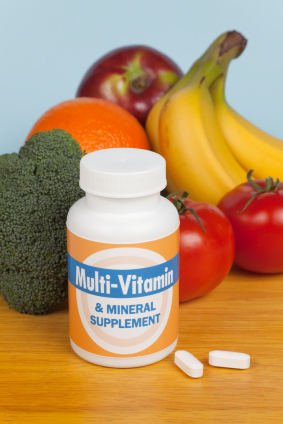Vitamins for your Cat
Vitamins for your Cat
By: Dr. George Obikoya
When trace minerals are deficient in our food and have you ever wondered if your cat needs vitamins? Yes it does. They could not survive without them. You are probably giving your cat a quality food, which is good. If you want your cat to have that very healthy coat, strong, non-greasy hair, clear eyes, strong immune system, and proper weight you really like, chances are you need to supplement its diet with essential vitamins and minerals. For one, the heat involved in processing pet foods does destroy some vital vitamins and additional vitamins are destroyed while the product sits on the shelf or in storage. This is besides the fact that these pet food products sometimes lack the essential vitamins and minerals in the first place.
There are two main categories of Vitamins: water-soluble and fat-soluble vitamins. Water-soluble vitamins include the B vitamins, niacin, pantothenic acid, folic acid, biotin, choline and Vitamin C. If your cat consumes too much of these vitamins, it will eliminate them through urine with no harm to the animal.
Fat-soluble vitamins include vitamins A, D, E and K. Your cat cannot get rid of these vitamins in the urine. They could reach toxic levels and poison your cat if given in excess. Please consult with a veterinarian before supplementing these particular vitamins.
Also note: Oil based hairball remedies can interfere with the absorption of vitamins. You should not use those for a long period of time.
Your cat also needs trace and essential minerals such as potassium, magnesium, zinc, calcium, iron, phosphorous and sodium chloride. Although they are very minute part of the dietary balance for a cat, they help ensure proper health and immunities.
On the other hand, cats require a diet lower in calcium and magnesium than some foods offer. Male cats, especially, may be prone to developing urinary tract disease if fed a diet high in calcium and magnesium. Fish is naturally very high in both minerals and you should avoid feeding your cat an extraordinarily high amount of fish.
Vitamins and mineral supplements play major roles in ensuring your cat is healthy and strong. Vitamin C, for example, is important in the synthesis of collagen, which is the most widely distributed tissue in the body. The belief was that there are no known dietary requirements for vitamin C in cats as they can synthesize their own Vitamin C from glucose in their liver. Recent studies have shown they need vitamin C supplementation, as they do not produce enough on their own.
Cats are carnivores. They require food that is high in protein including certain amino acids like taurine, and fat. In nature, if they were eating a fresh caught mouse the mouse would mostly consist of muscle tissue (main source of protein and amino acids), bones (main source of calcium), hair (fiber, minerals and protein) and inner organs (predigested grains with B vitamins and enzymes). Cats will NOT get proper nutrition if fed a vegetarian diet.
Like the diet of other animals, a cat's diet must also supply vitamins. But an unusual characteristic of cats is that they cannot form vitamin A from beta-carotene. Cats are also inefficient at converting the amino acid trypophan into the vitamin niacin.
You should feed your cat diets specifically designed for their breed, age, and activity level and recommended by the vet.
Ensure you consider your cat's specific nutritional needs when planning its diet and vitamin supplements. Cats are not small dogs and have very different nutritional requirements than dogs, whereas dogs have nutritional needs more similar to people than cats, cats are very different and need to be regarded as such. Dogs and cats both have complex nutritional requirements: dogs require 38 nutrients daily, while cats require 40. As your pet ages from birth into adolescence and adulthood and finally becomes geriatric, their nutritional requirements change as well.
These changing nutritional needs account for cat diets designed for growth, maintenance, reproduction, and the old age. Such diet or what some call life stage nutrition should meet the optimal nutritional requirements of animals at different ages or physiological states.
It may be difficult to get your cat to take its vitamins. If your cat develops a strong dislike for vitamins, follow these tips:
Check the ingredients. The vitamin supplement may have something your cat dislikes.
Test the size of the vitamins. They may be too large for your cat to swallow. (Tip: try a liquid).
Check with your vet, who may be able to help you find better vitamins.
Your cat can look healthy and feel strong, just the way you want it to be, but you must take a keen interest in what it eats and the vitamin and mineral supplements it needs if you want your cat to experience optimum health and longevity.
A good multivitamin is the foundation of health and nutrition. Take a look at our scientific reviews of many of the popular brands for factors such as ingredients, areas of improvement, quality level, and overall value. If you are looking for a high quality liquid multivitamin, we suggest that you take a look at the Multivitamin Product Comparisons.

